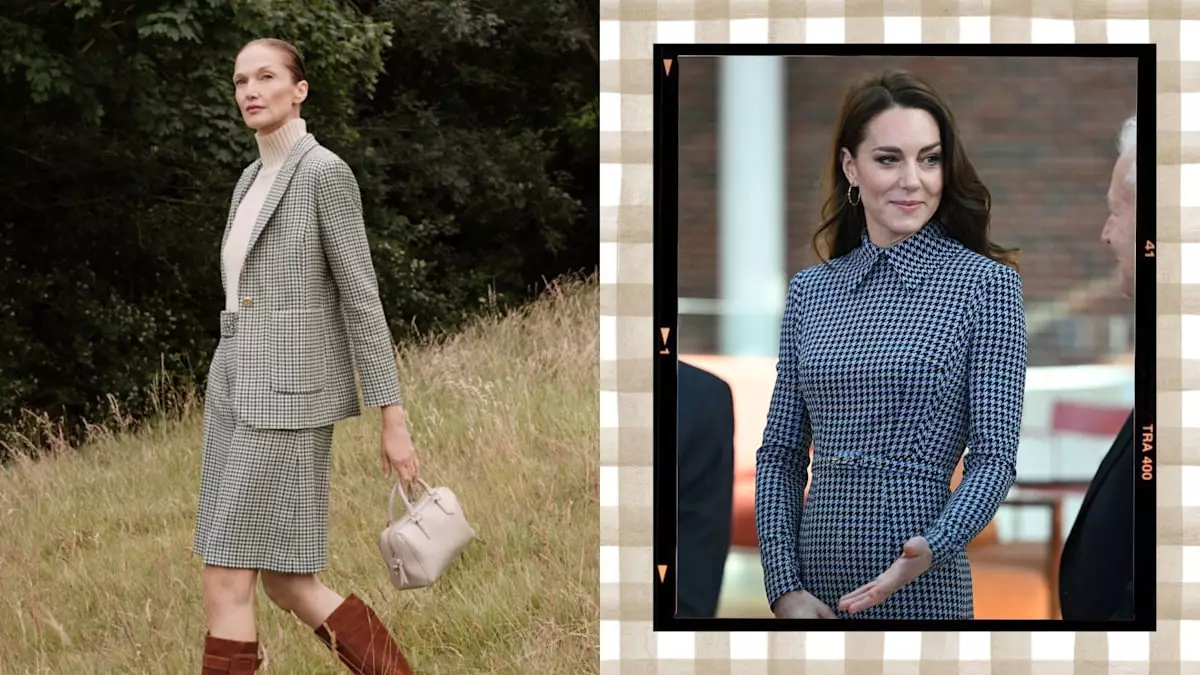In the ever-evolving landscape of fashion, a significant shift is taking place. As the awareness surrounding the environmental impact of fast fashion grows, consumers are more open to exploring sustainable alternatives. Since 2021, L.K. Bennett, a brand favored by the Princess of Wales, has been at the forefront of this trend with their innovative clothing rental service. The concept is straightforward yet profound: why invest heavily in a wardrobe that may only see the light of day a few times when you can rent high-quality, stylish items on a monthly basis?
The pressing concerns regarding the fashion industry’s environmental footprint have become increasingly difficult to overlook. With a staggering ten percent of global carbon emissions attributed to clothing production and disposal, the time for change has arrived. The rise of rental fashion as a sustainable solution underscores this necessity, offering consumers the chance to embrace trendy outfits without the guilt of contributing to landfills.
L.K. Bennett’s rental service, aptly named “LK Borrowed,” distinguishes itself from traditional rental models by offering subscribers exclusive access to a rotating selection of items for a monthly fee. By paying £79, clients can enjoy two garments at a time and switch them out multiple times each month. This method not only keeps wardrobes fresh and exciting but also curtails the excessive waste typically associated with fast fashion.
The appeal of this model lies in its dual attraction of affordability and sustainability. Each member not only diversifies their wardrobe but is also promoting a circular economy that minimizes waste. The brand emphasizes that this service gives customers the opportunity to experience high-quality pieces at a fraction of the retail cost while still allowing the option to purchase their favorite items at a discounted rate of up to fifty percent off. The mentality shifts from ownership to experience, allowing fashion lovers to enjoy a plethora of styles without the downsides of traditional purchasing.
Many individuals have begun re-evaluating their shopping habits in light of these developments. A personal commitment to steer clear of fast fashion has prompted a notable reflection on consumption habits. Transitioning to a wardrobe primarily composed of vintage, second-hand, or sustainably sourced clothing has proven beneficial, both economically and ethically. Before adopting these practices, many may find themselves carelessly spending upwards of £100 monthly on clothing, a figure that can spiral out of control.
Within the framework of L.K. Bennett’s rental service, the opportunity to engage with various styles far outweighs the temptation to buy. For the cost of £79 each month, subscribers can explore a diverse range of high-end outfits, effectively lessening the financial strain while still enjoying an expansive wardrobe. This approach has the potential to introduce a positive form of frugality, promoting conscientious purchasing habits through sustainable options.
The financial implications of embracing a rental wardrobe are worth noting, especially when placed in the context of common living expenses. For a year’s subscription costing less than £948, consumers find themselves investing in a fashion-forward solution that is cheaper than many unfortunately deemed “necessities.” Comparatively, the cost of a gym membership in London, or even a monthly phone plan, often exceeds what one would spend on a sustainable wardrobe that promotes both style and ecological responsibility.
Ultimately, the rise of fashion rental services like LK Borrowed illustrates a broader societal shift towards sustainable living. Consumers are opting for experiences over ownership, anticipating that their choices will contribute to a more sustainable future. In doing so, they not only elevate their personal style but also partake in a movement that values environmental consciousness amid the allure of high fashion.
Embracing this new wave of rental fashion provides a myriad of benefits, combining style, affordability, and sustainability into a single offering—one that has never been more relevant than it is today.

